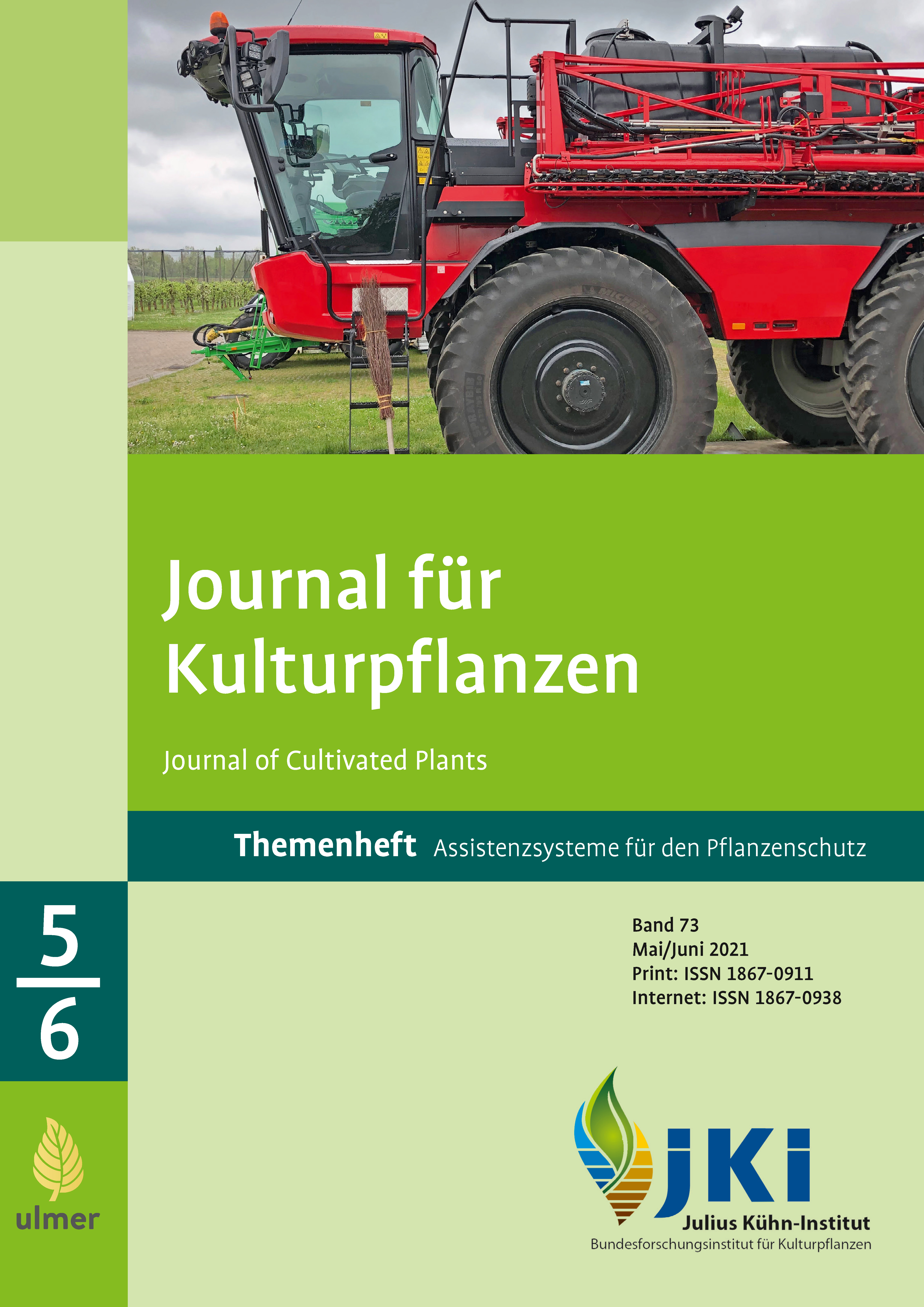Methodology for site-specific determination of slope inclination using digital height information in the Plant Protection Application Manager (PAM)
DOI:
https://doi.org/10.5073/JfK.2021.05-06.06Keywords:
plant protection, slope requirements, webservice, decision support system, digital elevation modelAbstract
In agriculture, many plant protection products (PPP) are subject to slope restrictions as part of their approval process. The aim is to prevent the discharge of pesticides into adjacent water bodies caused by surface runoff and soil erosion. There are currently no practicable instruments available throughout Germany, supporting farmers to determine the slope inclination in a reliable and verifiable manner. The PAM3D-service will provide an internet-based decision support system for complying with slope requirements in the context of PPP risk management. The slope inclination of a field is determined automatically based on digital elevation information using a novel algorithm. Contrary to other services providing an unreliable average field value, this new methodology allows for a site-specific slope assessment. The service supports various sources of elevation information including official laser, tractor, satellite, and drone data, and it is robust to the spatial resolution of input elevation data.
Downloads
Published
Issue
Section
License
Copyright (c) 2021 The author(s)

This work is licensed under a Creative Commons Attribution 4.0 International License.
The content of the journal is licensed under the Creative Commons Attribution 4.0 License. Any user is free to share and adapt (remix, transform, build upon) the content as long as the original publication is attributed (authors, title, year, journal, issue, pages).
The copyright of the published work remains with the authors. The authors grant the Journal of Cultivated Plants, the Julius Kühn-Institut and the OpenAgrar repository the non-exclusive right to distribute and exploit the work.







